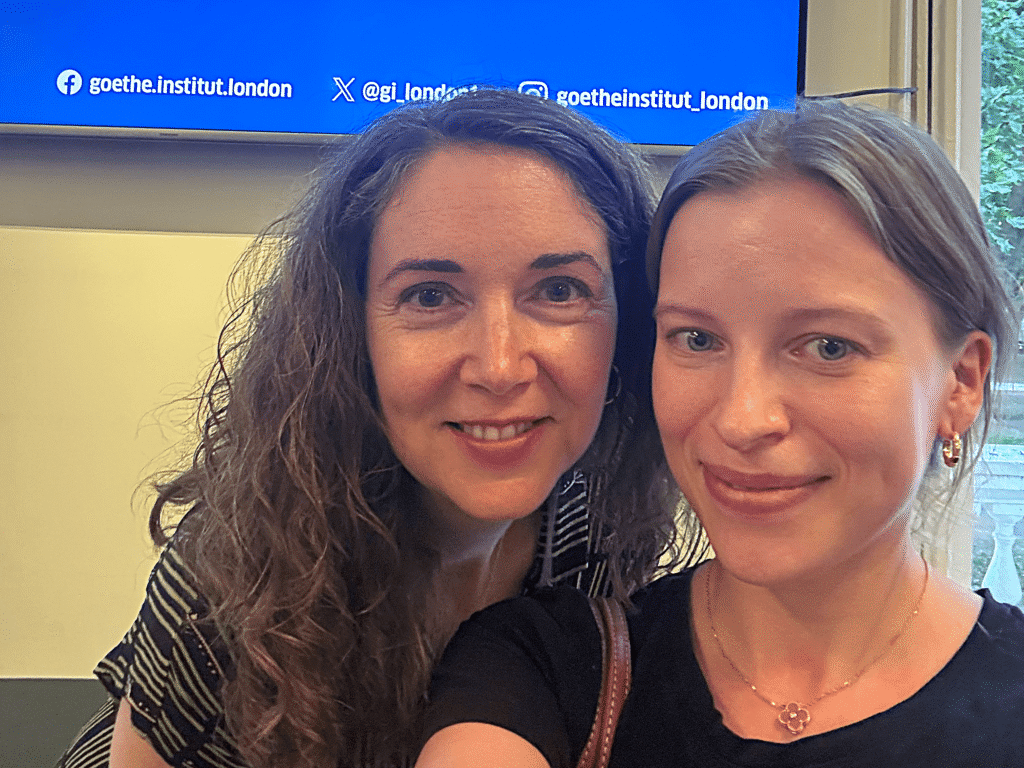Yesterday evening at Goethe-Institut’s library felt like stepping into a literary time capsule. The discussion around Iris Wolff’s Blurred wasn’t just another book launch — it was a masterclass in how stories cross borders, both geographical and linguistic.
Watching Wolff speak about her Transylvanian childhood while Ruth Martin explained her translation choices from German made me think about my own Eastern Empire, which I published in 2023. The parallels were striking. Here was another writer navigating the space between cultures, languages, identities. Wolff’s protagonist Samuel, growing up under Ceaușescu’s regime where language masks truth, reminded me of every character I’ve created who exists in that liminal space between worlds.
Monique Charlesworth from Moth Books made compelling points about how English-language publishers are finally waking up to Eastern European voices. Not the obvious ones we’ve been hearing for decades, but these nuanced, layered narratives that don’t fit neat categories. As someone who writes about cultural intersections, this felt like validation and opportunity rolled into one.
The technical aspects fascinated me almost as much as the content. Martin’s translation process — how she handled Wolff’s specific rhythm, the way Romanian and German linguistic patterns bleed into the narrative — this is craft at its finest. It made me reconsider how I layer languages in my own work. When I write about nail art sessions with multilingual clients, am I capturing that linguistic bleeding too?
What struck me most was Wolff’s exploration of “blurriness” as central to the immigrant experience. She spoke about characters who exist in multiple realities simultaneously — communist Romania, capitalist present, memory, dream. This resonates deeply with anyone who’s lived between cultures. My clients often exist in this same blur, performatively perfect online while vulnerable in my chair.
The networking value was immediate. Charlesworth and I connected over luxury branding — turns out publishers face the same positioning challenges as beauty brands. Her insights into Moth Books’ focus on untold stories from familiar places felt directly relevant to my work.
But beyond career calculus, yesterday reminded me why I write. Wolff’s book deals with what happens when people leave but others stay behind — the guilt, the survivor’s complex, the perpetual sense of not quite belonging anywhere. These are themes I’ve danced around in my novels but never confronted directly.
The audience was diverse in a way that felt authentic rather than performative. Eastern Europeans, expats, translation students, publishers. Real literary community, not Instagram literati. The questions were thoughtful, personal. Someone asked about writing trauma without sentimentality. Another about maintaining linguistic identity in translation.
Walking out into Fitzrovia afterwards, I felt that particular kind of creative restlessness that follows good literary events. Ideas clicking into place, connections forming. I’m already sketching notes for what might become my next project — something that engages more directly with questions of belonging and displacement.
The industry insights were equally valuable. Small press publishers like Moth are taking risks mainstream houses won’t. They’re building audiences for complex, boundary-crossing work. This feels like where my next book should land.
Sometimes the best career development happens when you’re not actively networking but simply engaging with work that challenges you. Yesterday did both.
— Writer Julia Zolotova

